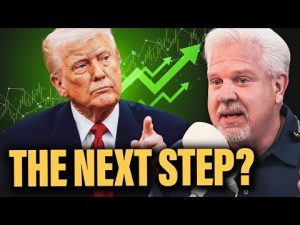In California, the glaring failures of Governor Gavin Newsom have become impossible to ignore. With significant numbers of residents abandoning the Golden State in recent years, it is clear that his leadership has caused significant damage. The reasons for this exodus are painfully obvious: a skyrocketing cost of living, a persistent housing crisis, never-ending tax increases, and rampant homelessness. Instead of addressing these real issues head-on, Newsom seems to have turned his attention to podcasting and positioning himself as a moderate. This shift raises a crucial question: why should anyone trust a leader who has mishandled his own state?
As many Californians flee in search of better opportunities elsewhere, Newsom’s approach has taken on an air of desperation. He seems to believe that jumping into the political fray with a new podcast and attempting to engage with conservatives will win back the support he has lost. However, this serves as a stark reminder of the troubling reality that faces Democrats in this country. Rather than recognizing the damage they’re inflicting on their constituents, they’re obsessed with purity, eliminating any moderate or dissenting voices in their ranks. This inward focus is not just damaging; it’s outright reckless.
Take, for example, how the Democratic Party has treated figures like Bobby Kennedy and Tulsi Gabbard, who dared to express opinions that diverged from the mainstream. Kennedy has been labeled an anti-vaccine crusader, while Gabbard has been treated as a Russian agent simply for her anti-war stance. Such actions reflect a party that is more interested in maintaining ideological purity than in addressing the real concerns of the American people. It’s no wonder the party struggles to connect with voters.
In contrast, the Republican Party remains committed to ensuring a diversity of views. This commitment can drive productive conversation and lead to real solutions. The ongoing struggle Democrats face, with an approval rating hovering around a staggering 31%, can be traced directly to their failure to embrace differing opinions. Their unwillingness to confront the issues that matter most to everyday Americans is leading them further down a path of isolation.
Newsom’s attempts to soften his public image are unlikely to succeed. His track record of mismanaging California speaks volumes more than any self-reinvention might. His focus on building platforms instead of fixing the problems plaguing his state demonstrates a lack of accountability. As long as he continues to shift blame and deny responsibility, Californians will represent the collateral damage left in his wake. The irony is palpable: while he attempts to rebrand himself as a moderate, his tenure is marred by decisions that drove people away from the state he once extolled.
The message is clear: leadership requires more than just talk; it demands action and accountability. As California continues to grapple with its issues, Newsom’s inadequate responses reveal the heart of the problem. The time has come for true responsibility, not just rhetoric. The future of the Democratic Party—and indeed the future of America—will depend on leaders who are willing to face facts, address concerns, and embrace all voices, not just their own echo chamber.







